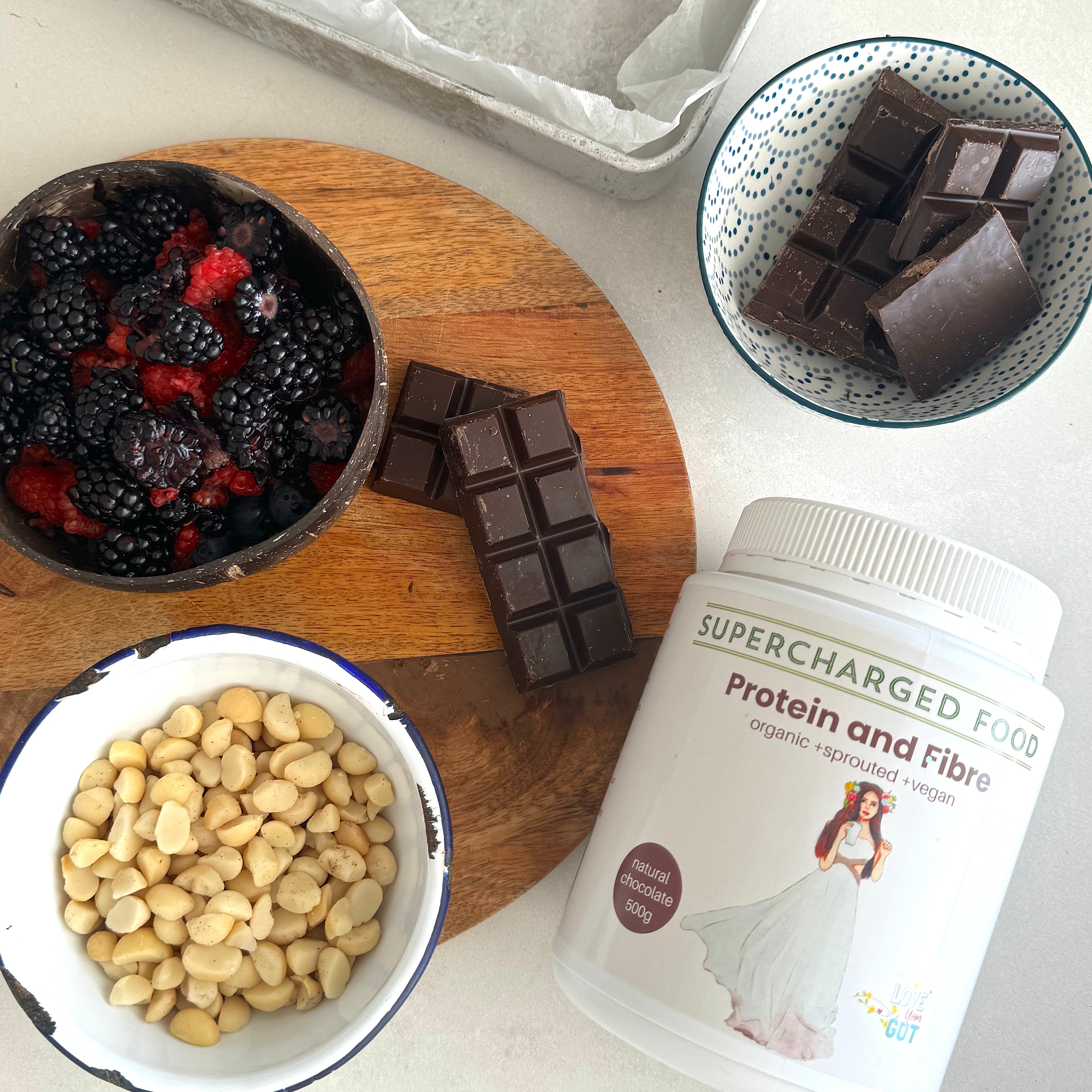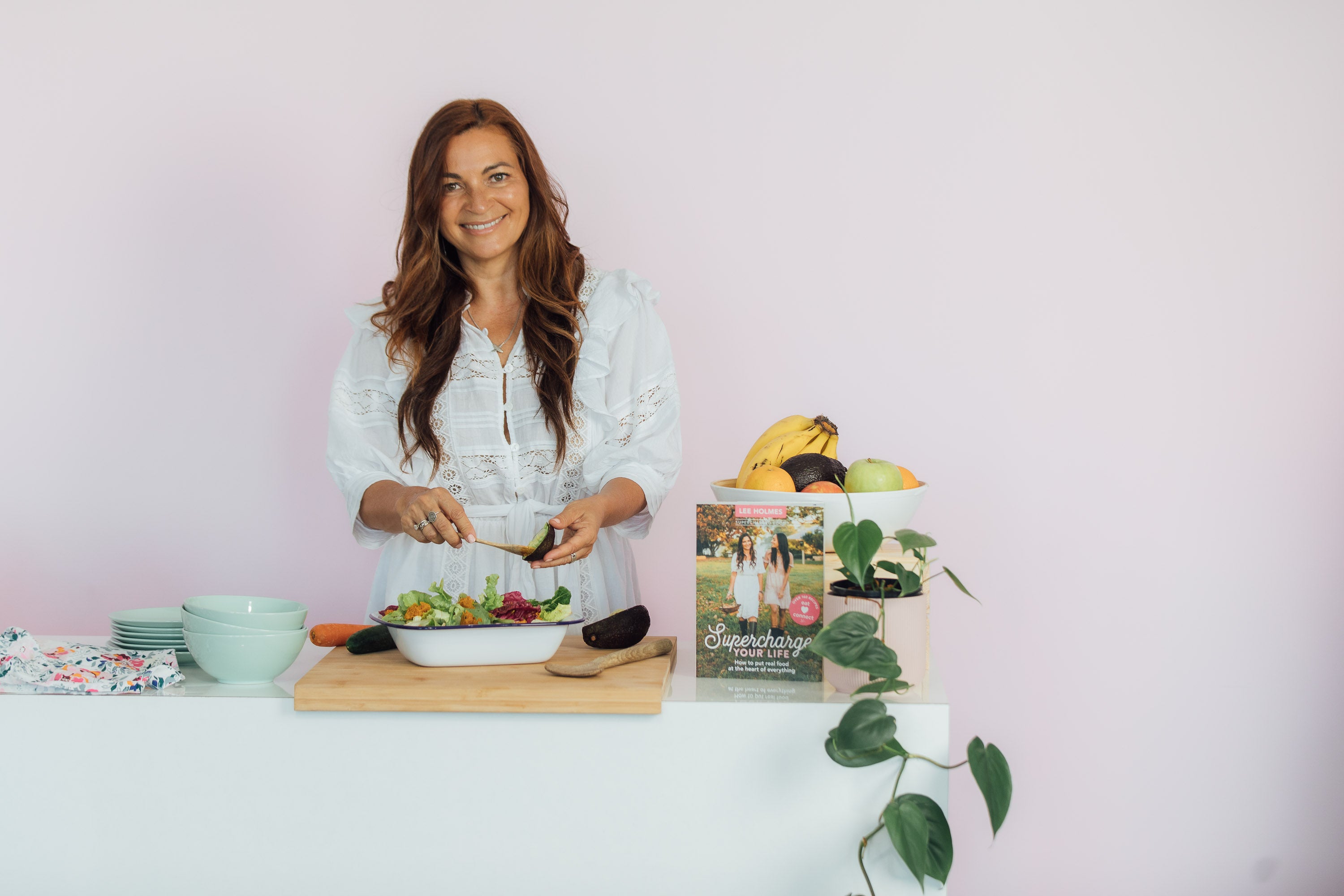Sundays and pancakes.
Harry and Megan.
The Bachelor and conversations about the couple’s love journey.
What do these things have in common?
Without one another, they’d be lost.
And when it comes to gut health, the same goes for prebiotics and probiotics.
While probiotics receive a lot of media attention and have a greater awareness, prebiotics do a lot of the heavy lifting. If we didn’t have prebiotics, probiotics would have a poor chance of survival, as some of them depending upon the strain, only last hours in our digestive systems. Prebiotics help promote the growth of good bacteria in the gut.
An easy way to think of prebiotics is that they are like a really good meal for probiotics, helping them to grow robust and strong. With the rise of diets such as the ketogenic diet, many people are bypassing their prebiotic rich foods, and their gut health is suffering. You can read my thoughts on Keto diets here.
The other improvements prebiotics are responsible for are metabolic health, and they can also help to alleviate digestive issues such as bloating and gas and boost the gut immune system to keep you protected from bugs.

If you’re keen to get ahead of the gut game, include these purposeful prebiotic-rich foods into your life. Also, if you're new to gut health, you might like to read Gut Health 101 for a gut overhaul.
The first up prebiotic rich food to be aware of is chicory root, and happily for us it's one of the best alternatives to coffee out there. Not only that, it also offers antioxidant compounds and beta-carotene, protecting the liver from oxidative damage.

Chicory root contains up to 47% of the prebiotic fibre known as inulin, helping to nourish our probiotics and improve the symptoms associated with digestive disorders, such as Irritable Bowel Syndrome and Irritable Bowel disease. As an added extra, chicory root also helps you to digest fat effectively. I love having chicory and dandelion root tea as an alternative to coffee in the morning. You can buy it is your local supermarket too.
While the name suggests this vegetable hails from the Middle East, it's found and loved around the world. Packed with B-vitamins, Jerusalem artichokes are great for boosting energy and mood. They’re loaded with dietary fibre, helping to control cholesterol levels, boost the immune system, and balance blood glucose and blood pressure. They’re also high in thiamine and potassium, contributing to nervous system health and muscle function.
I love roasting artichokes in the oven, boiling them or stuffing them with my favourite proteins. Try this Tray Bake here, where you can also read about my personal debunking of popular diets.
Artichokes provide a wonderful source of fibre, which can increase your friendly gut bacteria. Artichokes contain inulin, a type of fibre which act as a prebiotic. Artichoke extract may also relieve symptoms of indigestion, such as bloating, nausea and heartburn.
My third prebiotic rich gem is sweet sweet garlic, some love it, some hate it and others praise the ground it grows in. Personally, I love the taste, smell and feel of garlic. It acts as a prebiotic in the gut and can help prevent disease-promoting bacteria from spreading. It’s also rich in vitamins, minerals and fibre, including manganese, vitamin C, choline and magnesium, helping boost your immune system, improving the functioning of your nervous system and managing your cholesterol.

In a world full of garlic haters, why not stand out from the crowd? I love adding garlic to dressings, cooking it in a tray of roasted vegetables, or making it the star of the show in my Immune Boosting Roasted Garlic Bisque.
There's a beautiful Macadamia, Garlic and Parsnip soup below, which is the perfect way to get your dose of garlic goodness and gut-loving. It's a warming and nourishing soup filled with cooked vegetables to ease your digestion and keep you satisfied.
Next up we have Leeks, a wonderful source of prebiotics with the fibre inulin, helping to promote healthy gut bacteria and break down fat. Leeks are also high in vitamin K and flavonoids, which are good for your blood, bones and heart health.

While they’re part of the same family as onions and garlic, they impart a sweet and subtle taste. Leeks frequent my roasted vegetable tray and I love them in this Roasted Vegetable Stock.
Whole oats contain a beautiful prebiotic grain that contain large amounts of a fibre known as beta-glucan, as well as resistant starch. Studies show that the consumption of whole oats can help reduce total low-density lipoprotein cholesterol levels, (This is the one we want less of). They’re also effective in healing your gut bacteria, controlling blood sugar levels and maintaining energy levels. Just a spoonful of porridge a day can indeed improve gut health.

I love to start the day with my Gutmeal, Golden Gut Granola Clusters or by using oat flour in baking such as these delicious Waffles.
And now, for the final event: root vegetables. Root vegetables are just so tasty; they make it so easy to root for them! Starchy root vegetables like sweet potato, yams, turnips, parsnips and squash are easy-to-digest and cleansing for the body. They contain nutrients and fibre to help keep us satisfied and our guts happy.
While they tend to be sweet in taste, root veggies have a low glycaemic index, meaning they don’t spike your blood sugar levels. They’re also high in vitamin A and C and so, are great boosters for our skin and immune system.
Why not try throwing all of these great vegetables together in a Prebiotic Tray Bake here. It’s pimped up with a tangy garlic tahini dressing and is sure to make your gut, taste buds and fridge sing with joy.

Macadamia, garlic and parsnip soup
Macadamia nuts make a brilliantly creamy dairy-free milk, adding a dreamy smoothness and mild flavour to bring this soup together. Many studies are showing that nuts are great for feeding the gut and increasing the growth of beneficial bacteria. When blended in soups, nuts can be easier on the gut.
Serves 2-3
Ingredients:
- 3 large parsnips, peeled and cut into 2 cm (34 inch) rounds or dice
- 10 garlic cloves, sliced
- 1 large brown onion, roughly chopped
- 1 tablespoon extra virgin olive oil, plus extra (optional) for drizzling
- 155 g (512 oz/1 cup) macadamia nuts, soaked in warm filtered water for 30 minutes, plus extra (optional), chopped, to serve
- 1 litre (35 fl oz/4 cups) vegetable stock or filtered water
- 1 tablespoon apple cider vinegar
- 1 teaspoon dried thyme
- 1 teaspoon dried rosemary
- 1 tsp Love Your Gut powder
- sea salt and freshly ground black pepper, to taste
- thyme sprigs, to serve
Method:
Preheat the oven to 200°C (400°F).
Spread the parsnips, garlic and onion in a roasting tin, add the olive oil and toss to coat. Roast for 25–30 minutes, until the vegetables are tender and lightly browned.
While the vegetables are cooking, drain the soaked macadamias
Transfer the roasted vegetables to a large saucepan and add the macadamias, stock, apple cider vinegar, herbs, salt and pepper. Bring to the boil over medium heat, then reduce the heat to low and simmer, covered, for 10 minutes. Allow to cool slightly, then add Love Your Gut powder and purée in a food processor or blender until smooth and creamy.
Serve immediately, topped with extra chopped macadamias and a drizzle of extra olive oil, if using, black pepper and thyme sprigs.
Supercharged tip:
You can make this soup extra delicious by topping with small parsnips sliced lengthways and roasted.







Leave a comment